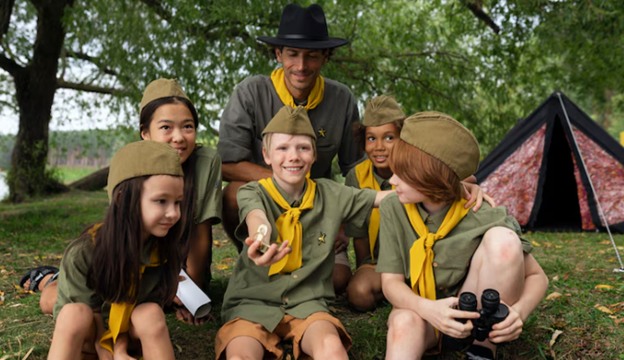In case your child has never attended a summer camp before, you might be unsure how to determine if they are ready for the camp experience. Although each camp is different, when talking with campers, parents, and camp staff, there are certain common themes that continually come up about the advantages of summer camp.
Children can grow in a variety of ways at summer camp, such as by setting and achieving goals, living with peers, learning cooperation, respect, and trustworthiness, and being away from home and acquiring independence. While leaving the camp, children are guaranteed to have changed their self-perception, acquired new life skills, and made lifelong memories.
Read on to learn four reasons why you should send your child to summer camp.
1. Exploration Of New Interests
Kids are exposed to a variety of fascinating new hobbies during summer camp. Activities at camp can include everything from swimming and horseback riding to nature trips and science experiments. Children spend their days discovering interests and hobbies that they may not have known about previously and discover that they have grown to adore a new hobby. These pursuits may develop into lifetime passions. In certain instances, people pursue their camp-discovered passions as their careers.
2. Development Of A Sense Of Independence & Self Responsibility
Many children attend camp for the first time ever—more than just one night—away from home. This can give a young individual a great sense of empowerment. Children are required to help out with chores, behave politely at mealtimes, keep their bunks clean in their cabins, and other tasks even though they are constantly watched over and kept safe.
Camp is a group endeavor that rewards responsible citizenship. Most parents and campers worry most about homesickness, but a good counselor will make sure their campers stay busy, content, and relaxed.
3. Great Way To Make New Friends
A summer camp is a wonderful opportunity for the youngsters to make new friends. Children can express their own personalities via new experiences and activities at the camp, which is a safe and enjoyable environment filled with kids of different ages and backgrounds.
Activities like hiking, swimming, gaga ball, and much more help campers bond. They get to interact with other kids and make new friends on their own. In order to keep everyone involved and having a good time, camp leaders and counselors also encourage involvement in camp activities and the formation of new friendships.
4. Extracurricular Learning Outside Of The Conventional School Environment
The majority of summer camps provide their participants with a range of classes. Most children wouldn’t have the opportunity to experience certain classic summer camp activities like rock climbing or archery otherwise.
One of the most important is environmental education, when campers explore the ecosystems and geology of the area. For example, children can take a quick trip up to the fossil pit where they will be excavated to find real fossils of extinct aquatic animals.
A desk in a classroom is not the same as the fully immersing, hands-on environmental education that occurs at camp. It’s also a strategy to prevent your children’s minds from mush during the summer.
